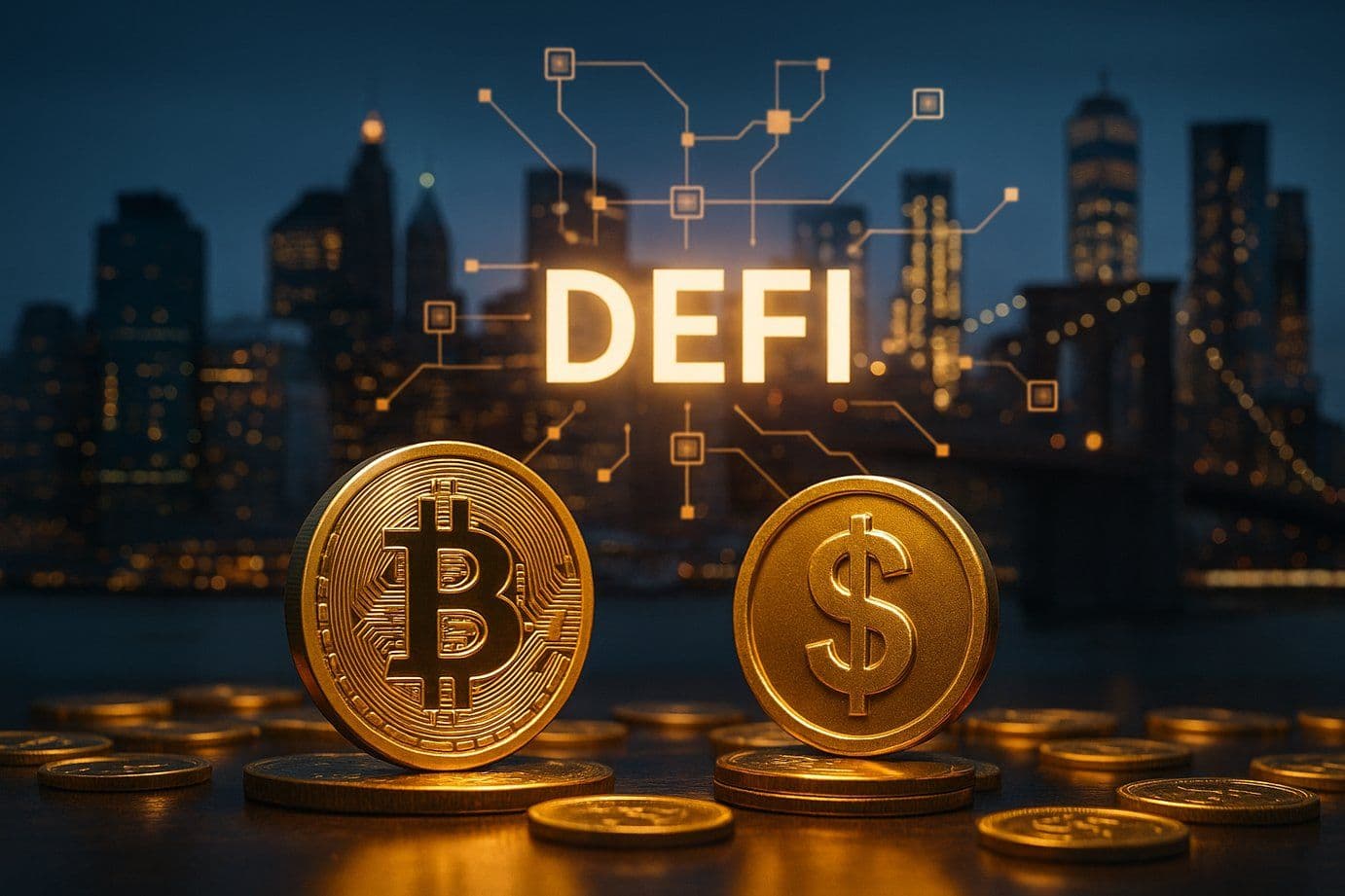Wall Street’s big players have quietly begun migrating capital into decentralized finance (DeFi) — not just as occasional experiments, but as strategic positioning. What once seemed like an ideological clash between old-guard banks and open protocols is now becoming a tactical convergence. The question is: are traditional finance giants aiming to replace crypto exchanges, or rather co-opt their advantages?
From Skeptics to Stakeholders
For years, many major banks and institutional funds dismissed DeFi as too volatile, too opaque, or too risky. But recent developments suggest a sharp reversal. Executives now speak about DeFi tools — programmable yield engines, automated compliance mechanisms, and real-time settlement rails — as essential infrastructure. Analysts argue that the banks are not abandoning their core advantage in regulation, liquidity underwriting, and client trust; instead, they are absorbing DeFi’s composability and transparency.
This shift isn’t symbolic. Some institutions are actively laying infrastructure and forging partnerships with protocol teams. Their goal: to position themselves as gateways between regulated capital and open protocols.
How Big Capital Is Entering DeFi
One visible trend is tokenization of traditional instruments. Banks are experimenting with tokenized money market funds and debt instruments that behave more like on-chain assets. This allows them to combine regulated assets with blockchain liquidity.
Another strategy is integration with existing protocols. Some financial entities are enabling their clients to borrow and lend through DeFi protocols, while keeping compliance oversight in-house. By routing flows through permissioned or semi-permissioned bridges, they maintain control and custody privileges while participating in decentralized yield.
Finally, building in-house rails has become a recurring motif. Rather than relying solely on public chains, a few banks are designing private or hybrid blockchains with bridges to open ecosystems. This lets them capture some efficiencies of DeFi — automation, settlement speed — but under their own risk and operational models.
What This Means for Crypto Exchanges
First, competition is intensifying. Exchanges that once enjoyed de facto custody and routing dominance may find themselves squeezed by entities that bring deeper regulatory capital, client bases, and banking relationships. Exchanges may need to evolve — offering more integrated services, better compliance tooling, or white-label infrastructure for banks.
Second, exchanges could become strategic partners rather than competitors. Banks may outsource trading desks, order matching, or liquidity aggregation to existing exchanges, while controlling custody, compliance, and client relationships. The lines blur: exchange infrastructure powers bank offerings behind the scenes.
Third, there is an existential pivot: exchanges might need to shift from “crypto-only” venues into full-stack digital-asset platforms — upgraded with institutional-grade front ends, custody, staking, tokenization, and compliance modules — to stay relevant.
Challenges Banks Must Overcome
Bridging to DeFi is not as simple as writing code. Banks contend with conflict between on-chain transparency and traditional confidentiality. They must guard against regulatory backlash if smart contracts misbehave, and manage the reputational risk of volatility or hacks.
On the technical side, composability itself is fragile: dependency on external protocols, oracle reliability, and cross-chain bridges introduce risk vectors. Banks entering DeFi must adopt rigorous risk controls, audits, and fallback mechanisms.
Cultural transformation is another hurdle. Most banks operate in careful hierarchies and slow decision cycles — while DeFi is fast, modular, and emergent. Harmonizing those speeds and mindsets is nontrivial.
Is This a Takeover—or a Hybrid Future?
It’s unlikely that banks will simply eradicate crypto exchanges. These platforms hold trust, user bases, branding, and network effects that are hard to replicate overnight. Instead, the future looks hybrid: banks offer regulated conduits and rails; exchanges provide market depth, integration, and on-chain-native tooling.
Over time, some exchanges may be absorbed, rebranded, or turned into modular components in larger bank-backed stacks. Others may specialize further — focusing on niche, permissionless sectors or frontier chains less attractive to banks.
What’s clear is that DeFi is no longer the fringe protest movement. It’s being refactored into mainstream infrastructure — and those who refuse to adapt risk being left behind.

